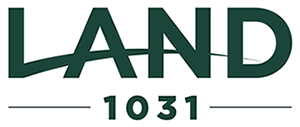In the land industry, there are a variety of ways to turn property into profit, but none are quite as enticing to modern landowners as the DST 1031 exchange. Understanding the basics of a DST or 1031 exchange is necessary for anyone looking to sell their land, as these legal processes can allow for the deferral of capital gains taxes.
What is a 1031 Exchange?
The 1031 exchange is a process that investors use to defer capital gains taxes on the sale of a property. Every seller is faced with capital gain taxes on any property sale, which are based on the amount of appreciation between the initial purchase and final sale prices.
Capital gains tax rates vary by state, but a seller could end up paying up to 35% of their final sale price in capital gains taxes if they aren't careful. This can come to a fairly significant amount of money depending on the size of the sale, so naturally, the 1031 exchange begins to appeal to landowners when they see how much money they may be losing to capital gains taxes.
The 1031 exchange allows an investor to defer the capital gains tax through the purchase of a similar property, known as a "replacement property," thereby turning that money that would've been paid in capital gains taxes into more real estate. The 1031 exchange is great for anyone that wants to sell their property but isn't quite ready to cash out of the real estate sector altogether, especially when that 1031 is performed through a DST.

What Are DSTs?
DSTs, or Delaware Statutory Trusts, are a kind of investment vehicle popular among real estate investors. DSTs allow investors to invest in fractional shares of a real estate project, meaning they can own a smaller portion of a larger piece of property like an apartment complex or office building. DSTs qualify for the 1031 exchange, meaning that they can be sold and the profits reinvested into a like-property in order to defer capital gains taxes in the same way that an individual landowner can defer taxes through a standard 1031 exchange.
There are many benefits associated with DSTs that are not typically found in other traditional forms of property ownership. For example, investing in a DST or multiple DSTs is a great way to diversify your real estate investment portfolio. DSTs offer access to investment opportunities in real estate properties and projects that would be otherwise inaccessible to most everyday investors. DST's also allow investors to defer gains on taxable boot left over from a 1031 exchange replacement property.








